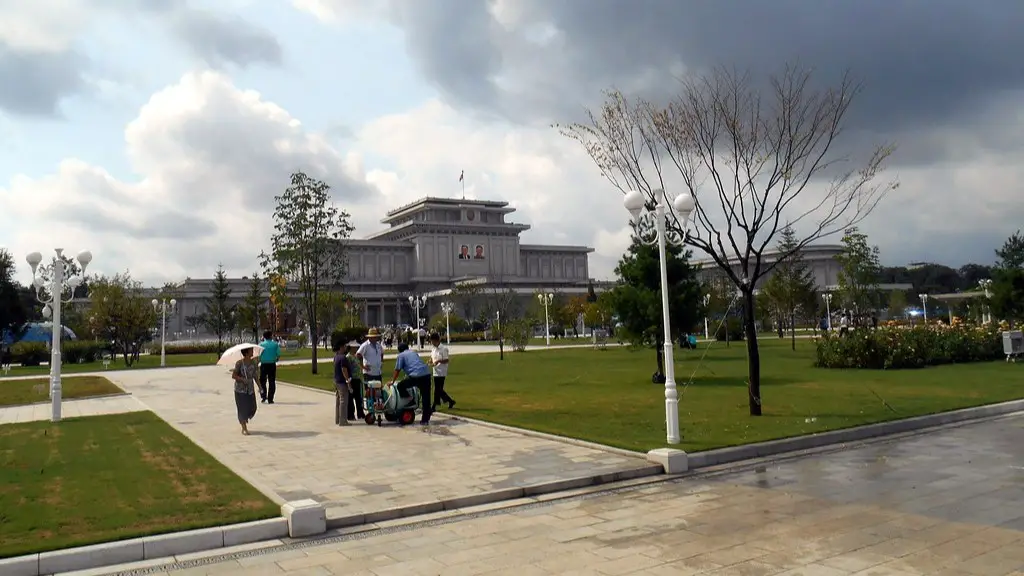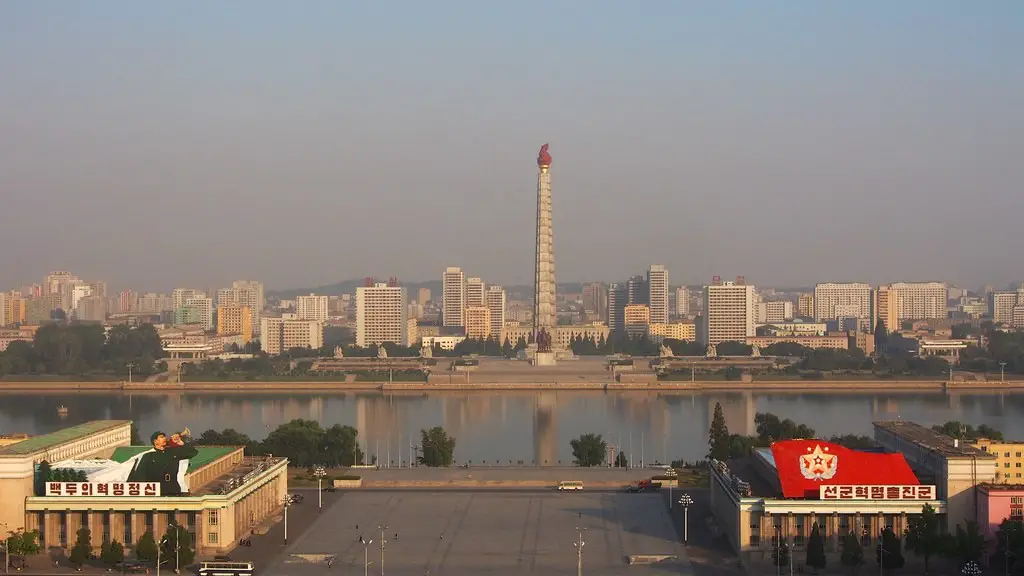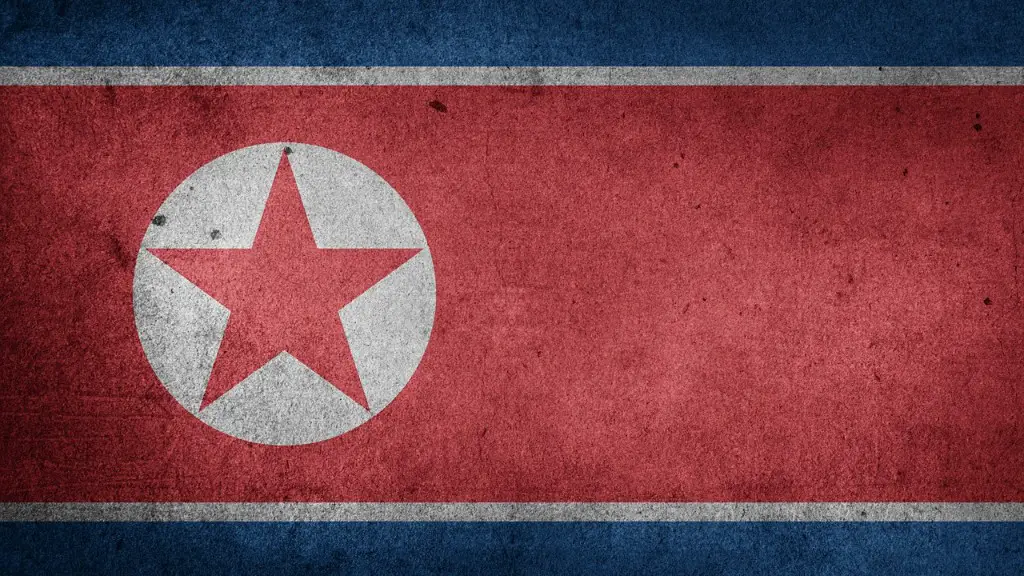Background Information
The recent internet outage in North Korea is one of the biggest technological disruptions in the country in recent history. North Korea is one of the least connected countries in the world and its internet is heavily censored and controlled by the government. While the exact cause of the outage is still unknown, speculation has been rife that this came as a result of a coordinated attack to take down the country’s internet.
While there have been similar outages in the past, this one was particularly severe and lasted for a much longer period of time. Other than the internet, access to telecommunications, radio, and other electronic communication networks have also been impacted in the region. It is estimated that the outage lasted at least three days, as reported by various monitoring services.
The impact of this outage on the citizens of North Korea remains to be seen. A significant portion of their population has been totally cut off from the outside world, unable to communicate with family and friends, or access any news or online services. It is also likely that the North Korean government has used this blackout period to tighten its grip on information within its borders.
Relevant Data
Despite the fact that North Korea has some of the most limited access to internet in the world, the country does have some connections to the global internet, primarily through servers located in China. These servers are monitored by North Korean authorities and are the only sources of access available to the general public. The recent outage impacted these servers, effectively taking the entire country offline.
It has been speculated that the cause of outage may have been due to sophisticated malicious attacks, known as “distributed denial of service” (DDoS). DDoS attacks are generally used by hackers to overwhelm a server with too much traffic, making it difficult for the server to respond and handle requests. If this attack was carried out by a hacker or a group of hackers, it would have been difficult for North Korean authorities to detect or counter the attack.
It is also possible that the outage was caused by technical failure or perhaps deliberately by the North Korean government. While it is difficult to ascertain the exact cause of the outage, the fact that the disruption was so widespread and lasted for so long indicates that the outage may have been pre-planned or deliberate.
Expert Perspectives
Experts have drawn various conclusions regarding the cause of this latest internet outage in North Korea. Some believe that the outage was caused by a cyber attack, while others suggest that it was the result of a technical failure. Other theories suggest that the North Korean government deliberately blocked access to the internet as a way to maintain control and consolidate power.
Cyber security experts also point out that given North Korea’s limited access to the global internet, it is unlikely that the outage was caused by an external cyber attack. While the country may be vulnerable to attack from other countries, North Korea’s isolated nature makes it less likely that a powerful country such as the US, China or Russia would conduct a cyber attack on it.
Information security experts are now focusing on the possibility of internal sabotage. Given the country’s lack of resources, it is possible that the outage was caused by internal actors with motives to disrupt the country’s access to information.
Analysis And Insights
It is clear that there is a huge debate surrounding the cause of the outage in North Korea, with a range of possible explanations. Despite the fact that North Korea is one of the least connected countries in the world, the fact that its access to the internet was so disrupted indicates that something significant has happened.
Whether the cause of the outage was malicious activity, technical failure or a deliberate act by the government, the impact of this disruption is likely to be felt for a long period of time. North Korea is likely to respond with increased censorship and surveillance in order to maintain control over its citizens.
It is also important to note that such outages can have a serious economic impact as access to electronic communication is essential for businesses and organisations. Disruptions to telecommunications networks can have a significant impact on a country’s ability to function and operate, leading to financial losses and economic disruption.
Impact Of Sanctions & Dictatorship
The recent internet outage in North Korea further highlights the extent of the country’s isolation from the world. The North Korean government has been accused of using sanctions and a brutal dictatorship to limit access to information from beyond its borders, stifling dissent, and preventing its citizens from accessing the internet.
The international community has also been striving towards trying to impose economic sanctions on North Korea in order to limit its access to resources, which has had a detrimental effect on the country’s economy and access to resources such as internet. It is believed that these economic sanctions may have played a role in the recent internet outage.
The fact that the internet outage lasted for such a long period of time serves as a reminder of the ruthless control that the North Korean government is capable of wielding, willing to shut down their entire network in order to maintain power.
Influencing Technology
The recent internet outage serves as a reminder of the power that technology has over society. Technology can be used to empower and enable individuals, but also to manipulate and control them. North Korea’s decision to take down the internet shows it is willing to go to extreme lengths to maintain its grip on power.
Given the increasing prevalence of technology in our lives, it is important to be aware of how these new technologies can be used to control and manipulate people. While these technologies can be used for good, it is also important to recognise the potential for government to misuse them for oppressive regimes and political control.
It is also important to remember that North Korea is not the only country to deliberately restrict access to information and use technology to control its citizens. The internet outages experienced in India and Iran in recent weeks highlights the risks associated with a lack of digital rights and freedom.
Cyber Warfare
The recent disruption to North Korea’s internet has further highlighted the vulnerability of the country’s networks to cyber attacks. With the increasing prevalence of cyber warfare, any country is vulnerable to attacks from hackers, criminals, and other hostile actors.
Cyber warfare is an ever-evolving area, with new techniques and tools constantly being developed by both sides. It is essential for countries to ensure their networks are secure and protected from cyber attacks, as the risks associated with these threats are becoming increasingly clear.
In the context of the recent internet outage in North Korea, it is important for the international community to increase its efforts to ensure that global networks are secure and protected from malicious actors. This not only applies to North Korea but also to other vulnerable countries that are at risk of disruption and manipulation.
Alternatives Networks & Internet Access
The recent disruption to North Korea’s internet also serves as a reminder of the need for alternative networks and sources of access. While it may be difficult to completely secure networks from cyber attacks, countries can reduce their risks by diversifying their access sources.
For example, countries such as China have implemented policies to maintain multiple networks. This allows the government to continue to provide access to the internet, even if one or more sources of access are down due to a cyber attack. This kind of resilience is essential in light of the increasing prevalence and sophistication of cyber warfare.
The recent internet outage in North Korea also serves as a reminder of the need for alternative networks to help citizens gain access to the internet, even in the most difficult circumstances. The emergence of satellite internet technologies, for example, has allowed countries such as North Korea to gain access to the internet, even under the most oppressive regimes.
In conclusion, it is clear that North Korea’s recent internet outage serves as an important reminder of just how vulnerable countries can be to cyber attacks. While the exact cause of the outage is still unknown, it is clear that the country’s networks were disrupted and that there are significant risks associated with cyber warfare. It is therefore essential for countries to ensure that their networks are secure and protected, and to be prepared for any disruption.





